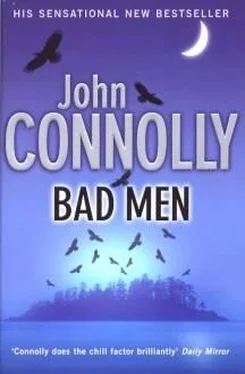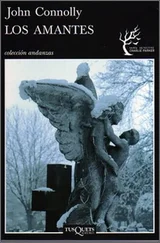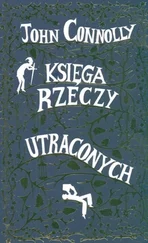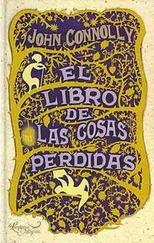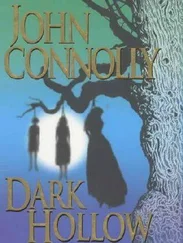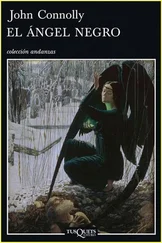Carl left them to it, and because he was still thirsty and had a beer appetite, he took a cab out to the Great Lost Bear on Forest Avenue and got himself a big basket of wings. It wasn’t Carl’s favorite bar, owing to the fact that the Portland cops liked to drink there, but he was hungry and the Bear was one of the few bars that served food late at night. He was halfway through his wings when his cell phone started ringing and he heard his brother’s voice when he answered the call. Ron wasn’t panicked, though, or afraid. He just told Carl to get in a cab and head over to Windham, and Carl had done just that, leaving the cab about a half mile from the address his brother had given him, as he had been instructed to do. Ron was waiting at the door of the house when he got there, and waved his brother in quickly. There were cuts on his face.
The woman was lying on the bathroom floor, and her face was all torn up. The mirror above the sink was shattered and there was a big shard of it in her eye. Smaller pieces were embedded in her cheeks and her forehead. Carl looked at his brother’s right hand and saw that some of the woman’s hair was still caught in his nails.
“I just lost it, man,” said Ron. “I don’t know what happened. She brought me back here and we was drinking, fooling around. We head for the bedroom and I try to get it on and next thing she’s pushing me away, calling me an animal. We started fighting, she ran to the bathroom, and then I was just pushing her against the wall and I couldn’t stop.”
He began to cry.
“I couldn’t stop, Carlie. I couldn’t stop.”
It was Carl’s finest moment. He told his brother to go find some rubber gloves and cleaning products, anything that could help them clear the scene. While Ron wiped everything, Carl wrapped the woman in sheets, then double-bagged her with black plastic garbage sacks, using tape to bind her tight as a fly’s ass. They washed everything down, until the house was cleaner than it had ever been before, then filled a suitcase with clothes, makeup and what little jewelry they could find. There wasn’t much that could be done about the broken mirror, so Carl just removed the last pieces from the frame and put a small vanity mirror from the bedroom on the bathroom sink. That way, he hoped, anyone who saw it would think that Jeanne had broken the bathroom mirror herself and was content to use the vanity mirror until she got around to replacing it. They put the suitcase and the body in the trunk of her car and drove down to their boat. Jeanne was loaded into the cabin and covered with a tarp, and then Carl parked her car on India Street and walked back to rejoin his brother. When they were half an hour out of port, they weighted her body with Carl’s old toolbox, which they kept in the boat for emergencies, and then dumped her overboard. She was never seen again by any living person, her body descending beneath the waves, lost to the eyes of the world and watched only by the ghost of a boy, for this was his place.
Jeanne Aiello was reported missing by her parents two days later, but by then her car had already been found. The cops were suspicious, maybe because Carl and Ron had gone a little overboard with their cleaning, leading the cops to wonder why a woman seemingly intent on heading off without telling anyone where she was going would clean her house so assiduously before she left. But there was no body for them to examine, and the description of the man with whom she had left the bar was so general that half the guys in Portland could have filled the bill. It looked as if Carl and Ron had managed to get away, literally, with murder.
But the relief was only temporary. It pained Carl to see the deterioration in his brother. He stopped working, started drinking more, and began talking gibberish about the woods. That was what frightened Carl most, the stuff about the forest. His brother was spending more and more time in the woods. He liked to hunt deer, and before the cull in ’99, the island had been nearly overrun with them. Nobody objected much to folks shooting them and filling up their freezers with the meat, although there was no way that Ron and Carl had a freezer big enough for all the dead meat Ron had created in the woods. But Ron wasn’t even hunting anymore. He would just head out into the woods with a couple of six-packs or a bottle of sour mash, and when he returned he would be carrying on conversations that had clearly begun a long time before, and were the continuation of some ongoing argument.
“No, I tell you, I ain’t done it. It weren’t my fault. No, no, no. You got to let me be now, y’hear?”
He also stopped shaving and combing his hair, because doing those things meant looking in mirrors, and Ron didn’t like looking in mirrors anymore, because Ron’s reflection wasn’t the only one he saw when he looked in the glass.
On the night that Ron died, Carl had left him to go meet up with some people down at the Rudder. Ron had seemed pretty lucid, clearer at least than he had been in months.
“Hey, little brother,” he said as Carl headed for the door. His brother was sitting slumped in an easy chair, staring at the fire. “I been thinking. I forced you to do a bad thing that night with the woman. I shouldn’t have made you get involved.”
“You’re my brother,” said Carl. “I’d do anything for you.”
“They’re gonna make me pay,” said Ron. “I have to pay for what I done. There are boundaries that you’re not supposed to overstep. They won’t tolerate that, so you have to pay.”
“Who? Who’s going to make you pay?”
But Ron didn’t seem to hear him.
“But I figure that if I pay, maybe that’ll be enough. Maybe they won’t want no more. Maybe they’ll leave you be.”
But when Carl tried to get more out of him, Ron had drifted off into a boozy sleep.
He remembered sitting at a table in the Rudder, not drinking much because he was so disturbed by his brother’s words. He heard the sound of the approaching chopper, then someone came in and said that Snowman, that cop with the dumb name, had been shot, and that-
And then the guy had looked at Carl, and Carl had known.
They said later that his brother had been shooting at the houses nearby, that he was all fired up over some imaginary boundary dispute with his neighbors, but Carl never believed that was true. Ron wasn’t shooting at houses when he died, and the boundaries of which he spoke had nothing to do with hedges or lawns. He was shooting at the things he imagined were speaking to him in the woods, and it was the transgression of their boundaries that led to his death. It was bullshit, of course. Ron’s mind had just collapsed under the weight of his guilt. But since then Carl had kept well clear of the woods that surrounded his house, sticking to the roads and the main paths. Whatever had tormented his brother might have been all in his head, but Carl recalled an incident a week or two back, shortly after the fourth anniversary of Ron’s death, when he was out in the yard bringing in supplies from his truck and he looked out into the forest and saw someone watching him from among the trees. Carl didn’t panic, though. Instead, he laid the brown paper bags down on the ground and, never taking his eyes off the figure in the woods, removed his shotgun from its case in the back of his truck. He loaded it up with the truck shielding him, then headed for the trees.
The figure was dressed all in gray, and seemed to shimmer.
“Who are you?” asked Carl, as he drew closer.
And then the figure had exploded, shards of it spreading in all directions, into the trees, into the sky, along the ground.
And toward Carl.
Carl turned his face away and shielded himself with one arm. He felt things striking him, felt them moving as they did so. When at last he lowered his arm, there was nothing before him but darkness and trees, but something was caught in the folds of his coat. It fluttered and beat against him, until he released it and allowed it to fly free.
Читать дальше
